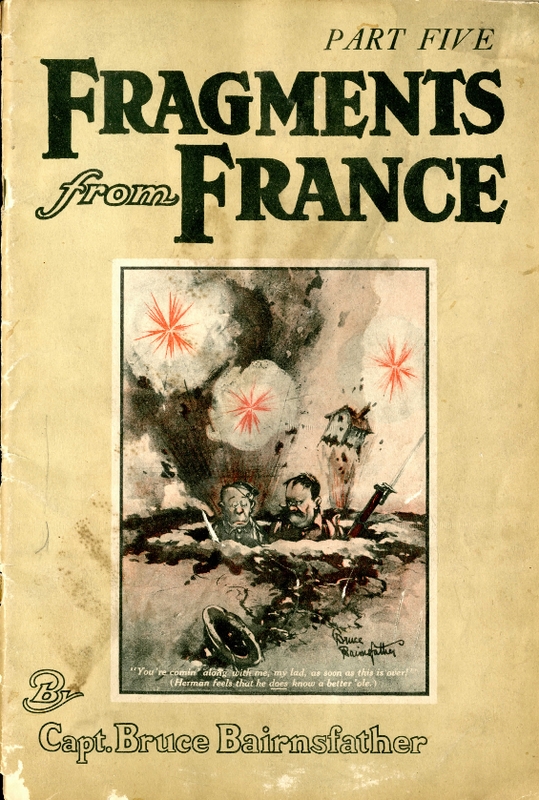I INTRODUCTION
AR carries with it an over-measure of sadness and misery of all kinds. It is, of course, not only the men on the fighting line who suffer from hardship and from wounds and who are ready to meet the h a1 sacrifice of life itself, but the circles of their home folks, the mothers, the sisters, the wives, the loved ones who, if all went right,
would become wives, whose anxieties for those on the fighting lines become themselves tragedies.
Any man who, without sacrifice of truth or concealment of perils and troubles which are too real to be made light of, can do something to give to the boys at the front and to the home folks in the rear some diversion from the sadness and the strain, who can make clear that, even in
the midst of trouble and on the edge of tragedy, man is in his nature capable of in his surroundings and in life itself the sense of humour which serves to lighten the cloud or sadness-such a man is a benefactor in the largest sense of the term.
Captain Bairnsfather has had long practical experience in the fighting line. He has been in the service from the beginning of the War, and for a large part of that time bas been actively engaged at the front. The early
breaks in his service in the field and in the trenches were caused by the necessity of retiring to hospital for the healing of honourable wounds. Bairnsfather is evidently a man of such elasticity of temperament that
no amount of fatigue, or hardship, or peril, or pain can quench the ebullition
1
of his spirit. With a charming vitality, an exuberant sense of humour; he possesses, fortunately for himself, for his comrades and for the world, the
